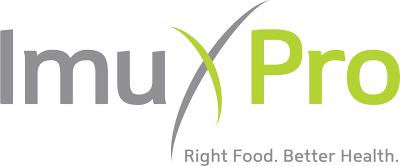ImuPro IgG Testing
IgG Testing
Symptoms of IgG mediated food allergy (commonly known as a “food intolerance”) can be general or specific, and may not appear until up to 3 days after consumption of a food. This makes identifying the trigger food/s extremely difficult to do, without testing. In general, you may feel fatigued and easily exhausted despite eating all the right “healthy” foods, or you may suffer from gastrointestinal complaints, joint pain, headache or even Chronic Fatigue Syndrome (CFS) which can lead to depressive symptoms.
The role of inflammation in a number of mental and physical conditions is at the forefront of the latest clinical research. Foods which contribute to inflammation should always be a consideration on your journey to better health.
About the test
The ImuPro test is conducted using the ELISA test method. This is a long used standard procedure in laboratory analysis. Your serum sample will be analysed in ImuPro’s German laboratories to determine the presence of specific IgG antibodies to a wide variety of individual foods. These IgG antibodies are detected due to their ability to bind to specific proteins in up to 270 analysed foods. Based on the results of the antibody titre, these foods are then categorised into three groups: “not elevated”, “elevated” and “highly elevated”.
The specific IgG concentrations determined by the ImuPro test do not necessarily reflect the occurrence or the severity of serious clinical symptoms. They offer the basis for you to begin your elimination and provocation diet. ImuPro will guide you through this process with three phases, explained in your results: the elimination phase, the provocation phase, and the stabilisation phase.
The Imu Pro Concept
With ImuPro, you can explore whether or not elevated IgG antibodies against specific foods could indicate the cause of certain symptoms. Together with your test results, you will receive comprehensive nutritional guidelines explaining your results and how to incorporate them into your lifestyle.
The nutritional guidelines contain three important building blocks, known as the ImuPro Concept.
Elimination Phase
During the elimination phase, you may consume all the foods without raised levels of IgG antibodies in a 4-day rotation cycle. This helps to prevent the development of new delayed food allergies and malnutrition. All foods with high levels of IgG antibodies are avoided during this phase. By avoiding them, inflammatory processes can be reduced or even stopped.
Provocation Phase
After the elimination phase, you start a provocation diet and gradually include the avoided foods one by one. The provocation phase helps to find your personal trigger foods. Only one new food at a time should be reintroduced in order to find out whether it might be responsible for your complaints.
Stabilization Phase
During the stabilization phase, the trigger foods identified in the provocation phase are avoided for at least one year so that the IgG antibodies can degrade and your body can recover. Then you may start another provocation phase. You may find that there are one or two foods that you will have to avoid permanently. IgG reactive foods which did not cause a reaction during Phase 2 can be reintroduced in a 4-day rotation cycle.

